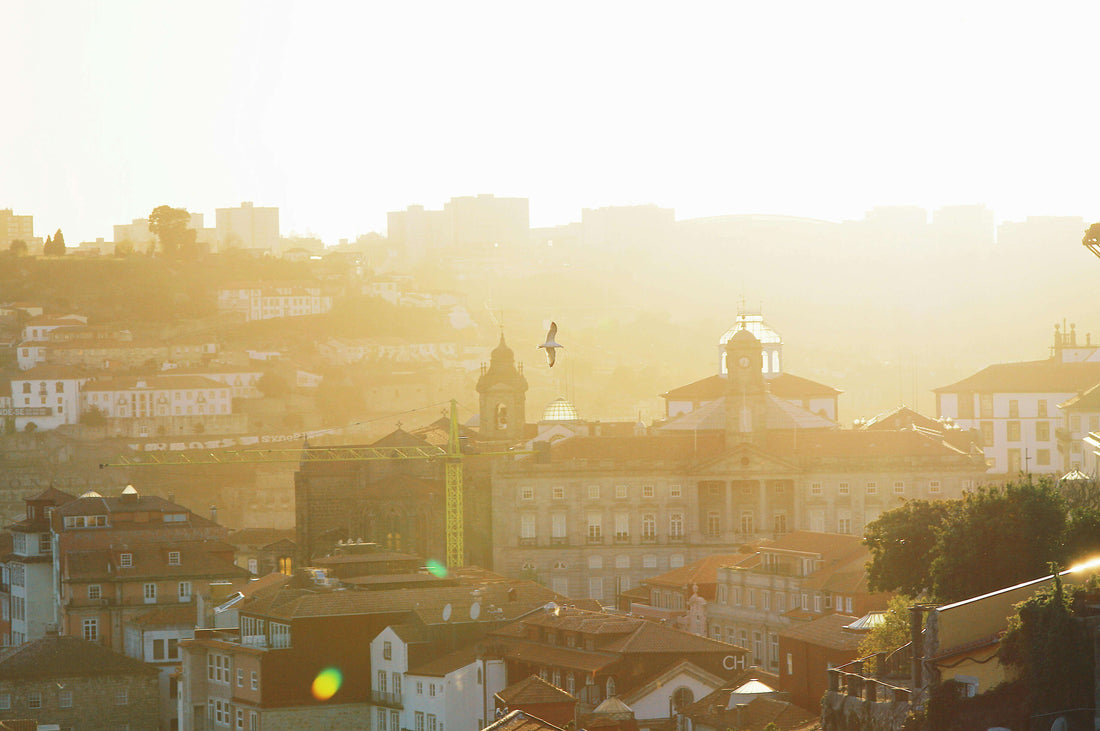
Slow living like in Portugal – Principles of the Portuguese way of life Part 1
We know that the Portuguese are blessed with a great landscape and climate. But they are also ahead of us Central Europeans when it comes to lifestyle and slow living. We will show you aspects of life that are characteristic of this small region on the edge of Europe.
1. A balanced cuisine
Portuguese cuisine is something I have known since early childhood. When I was asked as a child what my favorite dish was, the answer was: "peixe frito com arroz de tomate" - fried fish with tomato rice. Even now, when I write about it, I can taste the fish and tomatoes. My childish sense of taste reflects Portuguese cuisine well: simple, straightforward dishes based on fresh and local ingredients. Even though Portugal is not actually part of the Mediterranean region, typical Portuguese cuisine is similar to that of many Mediterranean countries. The focus is on plant-based foods, supplemented by pulses and whole grains and fish and seafood as a source of protein. ...And of course the main ingredient in Portugal: olive oil. The health benefits of this diet are proven. It not only contributes to a long life, but also to a happy one. Not least because these simple but balanced dishes taste even better in the company of family and friends and with a glass of wine.
2. Daytime-adapted sleeping habits
Anyone who has ever been on a beach holiday in Portugal will have noticed that the Portuguese go home in droves at midday, leaving the beach a deserted place. Many shops also close at midday. This rhythm of life has a long tradition. After a long almoço, lunch, follows the soneca, the afternoon nap. This sleeping habit dates back to a time when many Portuguese worked in the countryside. The high temperatures made work arduous and unproductive. The midday heat drove people into their houses, where they could rest during the hottest part of the day. The soneca was a natural part of the day and essential to regain energy for the afternoon. Admittedly, not all Portuguese people take a nap at midday today. A modern work rhythm often does not allow the younger generation to take a short afternoon nap. However, older generations in particular still value this tradition. However, extended rest periods are still a characteristic of the Portuguese way of life today. They reflect the Portuguese people's appreciation for relaxation and balance.
3. A sense of community
Mediterranean cultures are known for their sociability and family ties. This is also the case in Portugal. The best example is our own family history. When our grandparents came to Germany as guest workers in the 1970s, they left their daughter and son behind with their grandparents in their homeland. A circumstance that was absolutely normal and socially accepted. The reasons for this lie in a socio-cultural self-image that has developed over the centuries: you are part of a community and depend on one another. For many Portuguese, the family still has an inviolable value today. It is not for nothing that people speak of the "família sagrada", the holy family - an expression that plays a major role in the context of the Catholic faith. The biblical depiction of a family: Mary, Joseph and Jesus serves not only as a religious role model, but also as a symbol of values that are held in high esteem in Portugal: love, solidarity, willingness to sacrifice and mutual support.

